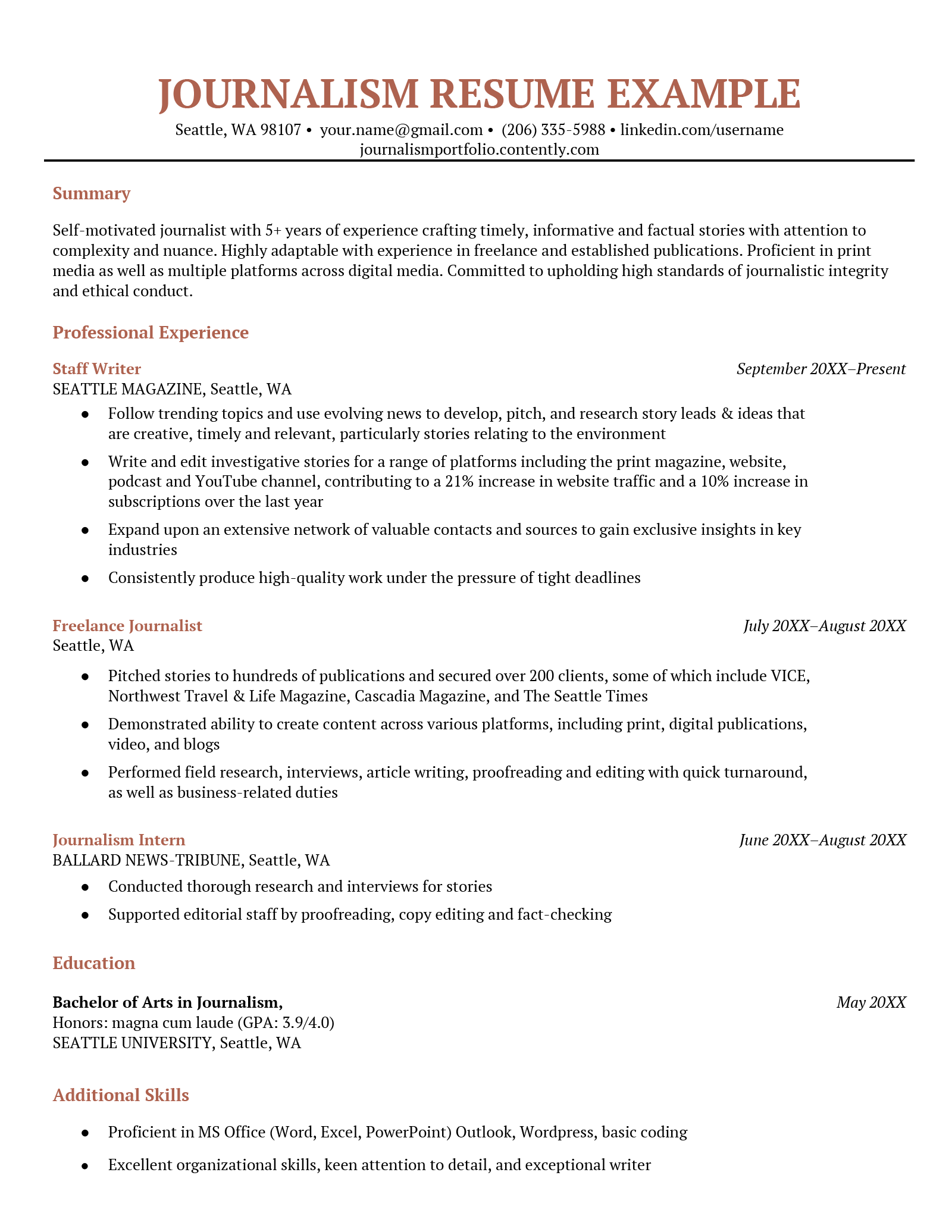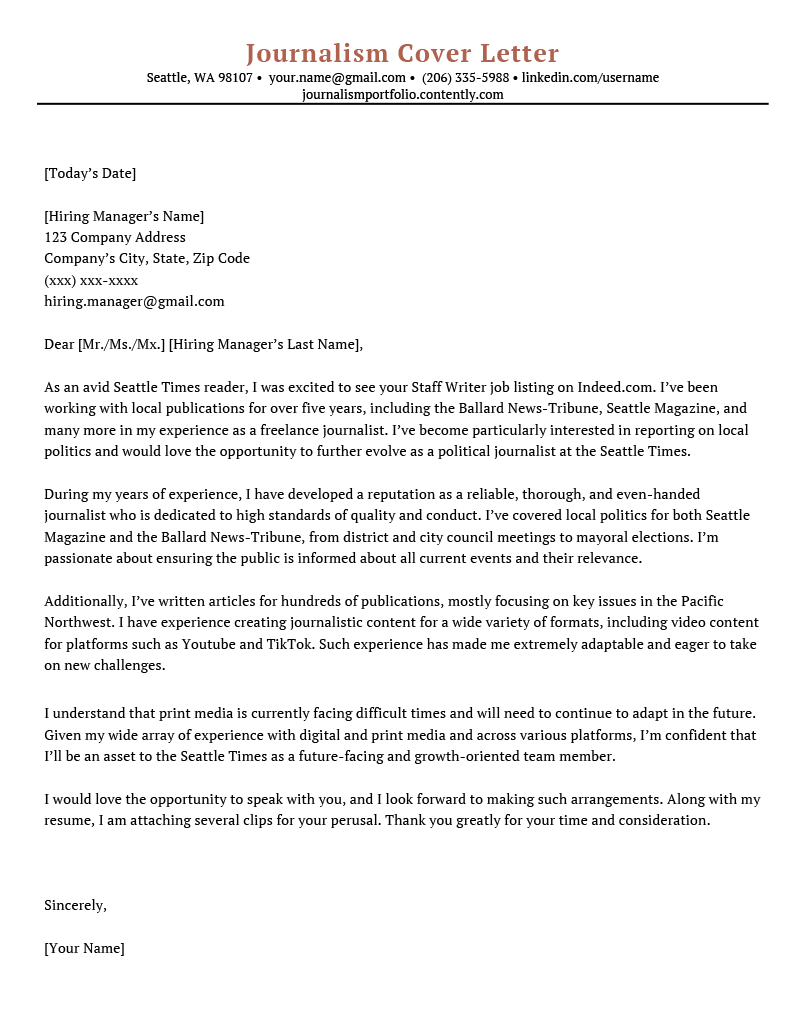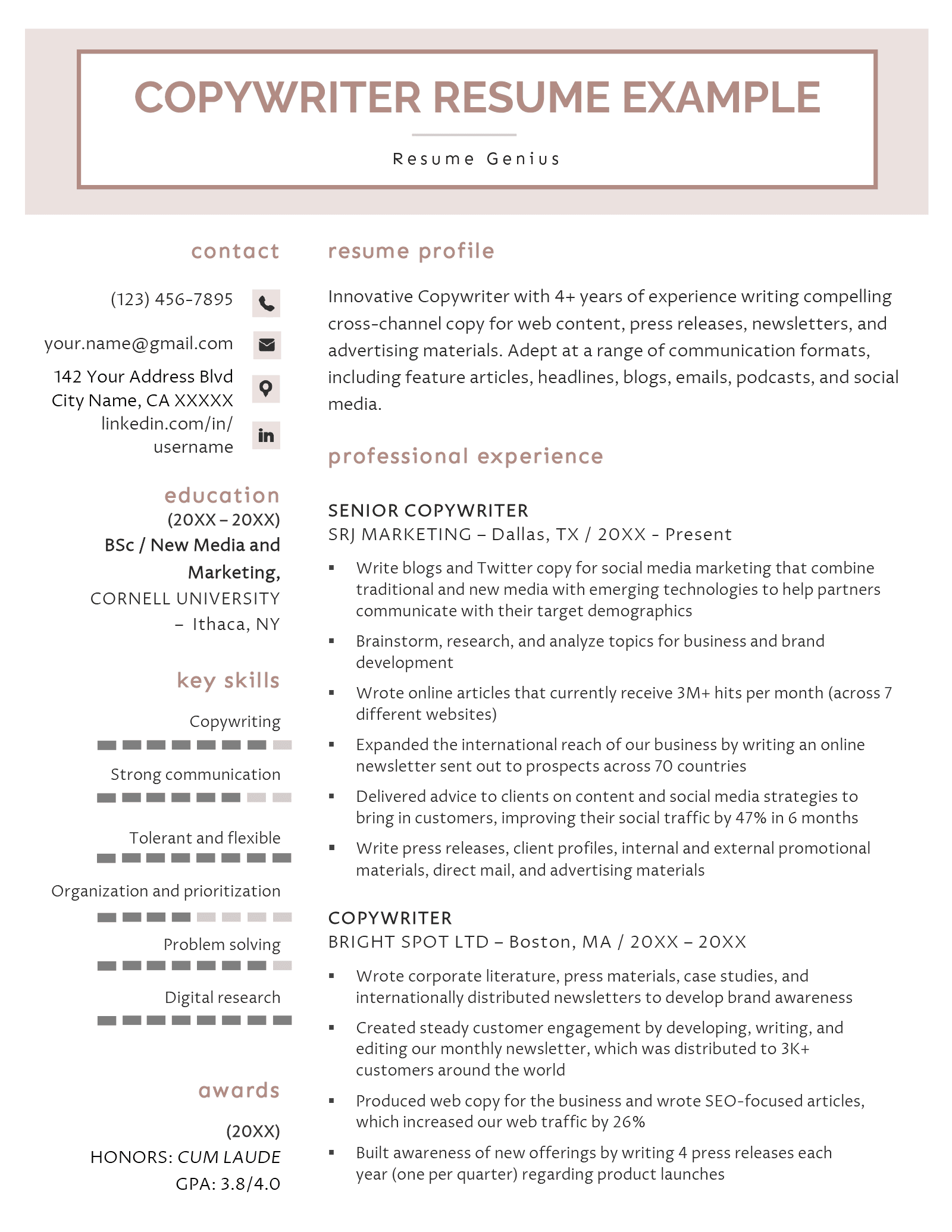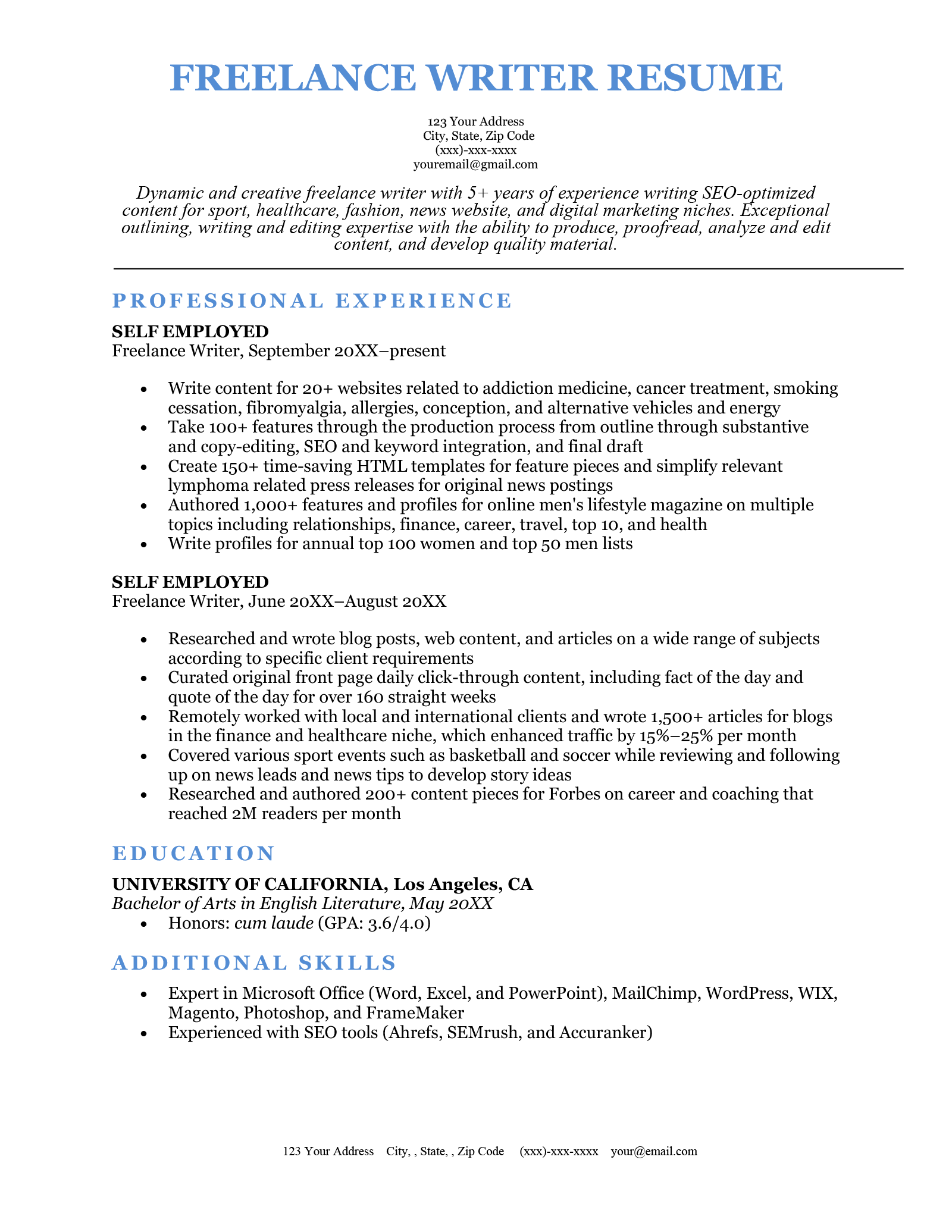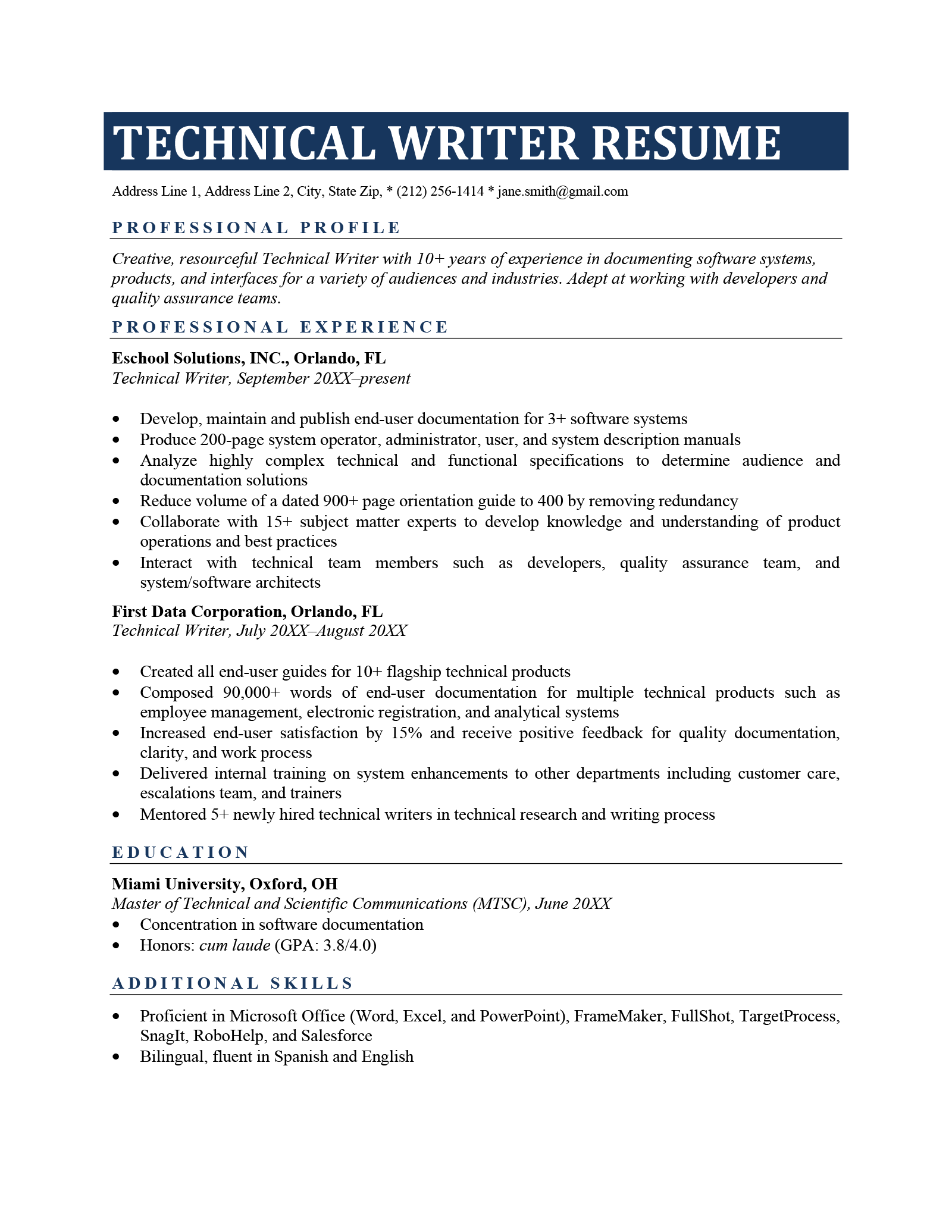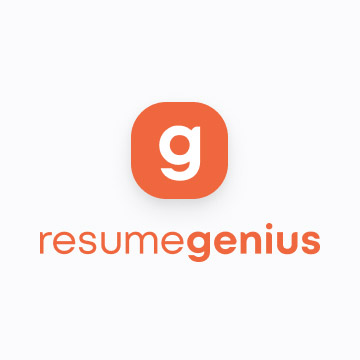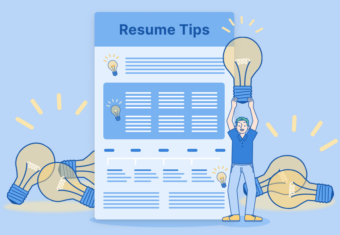Journalism Resume Template (Text Format)
FIRST AND LAST NAME
Email: your.email@email.com
Phone: (123) 456-7891
Address: Street, City, State
LinkedIn: linkedin.com/in/yourprofile
Summary
Self-motivated journalist with 5+ years of experience crafting timely, informative and factual stories with attention to complexity and nuance. Highly adaptable with experience in freelance and established publications. Proficient in print media as well as multiple platforms across digital media. Committed to upholding high standards of journalistic integrity and ethical conduct.
Professional Experience
Staff Writer
SEATTLE MAGAZINE, Seattle, WA September 2019–Present
- Follow trending topics and use evolving news to develop, pitch, and research story leads & ideas that are creative, timely and relevant, particularly stories relating to the environment
- Write and edit investigative stories for a range of platforms including the print magazine, website, podcast and YouTube channel, contributing to a 21% increase in website traffic and a 10% increase in subscriptions over the last year
- Expand upon an extensive network of valuable contacts and sources to gain exclusive insights in key industries
- Consistently produce high-quality work under the pressure of tight deadlines
Freelance Journalist
Seattle, WA July 2017–August 2019
- Pitched stories to hundreds of publications and secured over 200 clients, some of which include VICE, Northwest Travel & Life Magazine, Cascadia Magazine, and The Seattle Times
- Demonstrated ability to create content across various platforms, including print, digital publications, video, and blogs
- Performed field research, interviews, article writing, proofreading and editing with quick turnaround, as well as business-related duties
Journalism Intern
BALLARD NEWS-TRIBUNE, Seattle, WA June 2016–August 2017
- Conducted thorough research and interviews for stories
- Supported editorial staff by proofreading, copy editing and fact-checking
Education
Bachelor of Arts in Journalism,
Honors: magna cum laude (GPA: 3.9/4.0)
SEATTLE UNIVERSITY, Seattle, WA May 2016
Additional Skills
- Proficient in MS Office (Word, Excel, PowerPoint) Outlook, WordPress, basic coding
- Excellent organizational skills, keen attention to detail, and exceptional writer


